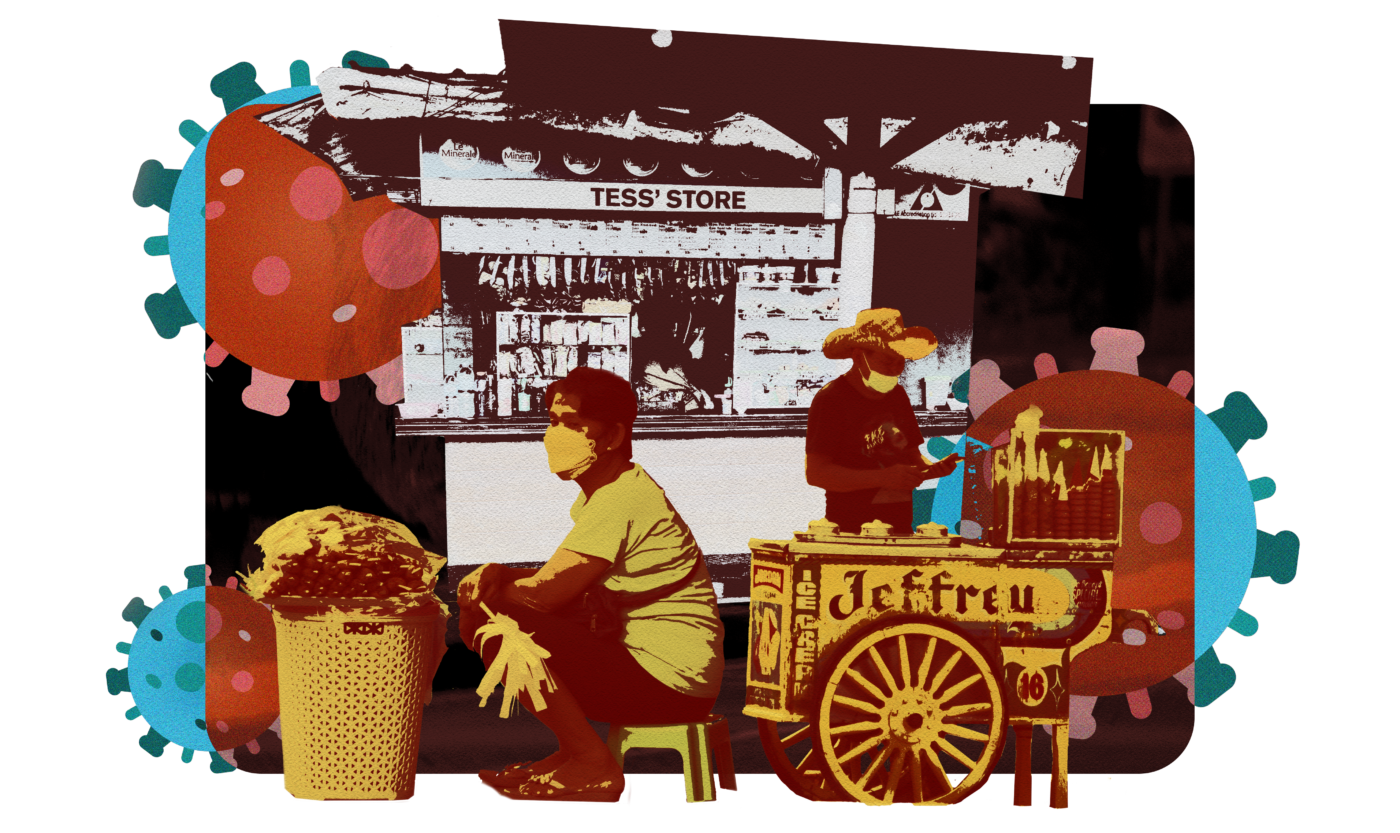THE INFORMAL sector has been one of the hardest hit during the height of the COVID-19 pandemic. The lack of prompt financial support particularly left many informal sector workers with no choice other than death from the virus or hunger.
While government programs such as the Social Amelioration Program (SAP) were enacted to aid against the financial turmoil afflicting the sector, many have criticized these initiatives as several controversies around them surfaced.
Unhealed wounds
According to the International Labour Organization (ILO), “The informal economy consists of independent, self-employed small-scale producers and distributors of goods and services.” In a survey conducted by the Philippine Statistics Authority (PSA), informal laborers were estimated to make up 38.3 percent of the working population.
This sector is not accounted for by any labor laws, leaving its workers open to many issues. Thus, low wages, safety and health hazards, and lack of access to health and financial services have plagued informal laborers even before the pandemic. Such challenges only worsened with the introduction of lockdowns and restrictions.
Job security is one of the largest hurdles that workers of the sector had to face during the pandemic. According to the Asian Development Bank Institute (ABDI), many Filipino workers were laid off from their jobs as a result of lockdowns. They added that two out of five workers who did not have formal employment were prone to suffering the pandemic’s most severe effects due to their low wages. This subsequently causes problems such as food insecurity and difficulty in accessing health services.
Department of Social Welfare and Development (DSWD) Administrative Services Division Chief Merlinda A. Paragamac said that given the unstable economy, many informal laborers are left with no direct source of income. Even those who have been able to work now do so irregularly. Paragamac elaborated that the lack of regular income for informal workers causes other challenges. She cited their struggle to provide basic necessities for their families as an example. They might also become burdened with additional medical costs if they were to contract COVID-19.
Chronically invisible
In an attempt to hurdle the grave effects of the pandemic, the DSWD devised numerous initiatives as touchpoints between the often-overlooked sector and the government. These include the Social Amelioration Program (SAP), which released emergency subsidies to over 18 million indigent households in 2020. The Livelihood Assistance Grants project (LAG) also supplied subsidies to informal workers whose jobs were affected by the community quarantine. However, these programs faced difficulties in actually reaching them, with one implementation pain point being the government’s lack of a centralized informal sector database.
“What we have is only [data on] the poor…,” the social worker stated. In Paragamac’s experience, the P205-billion budget for frontline agencies was “insufficient” and aggravated complications in the identification of target beneficiaries.
To address these obstacles, DSWD coordinated with the Department of Labor and Employment (DOLE) to avoid service and benefit redundancies. According to Paragamac, they aim to harmonize SAP databases for census-taking and cash aid distribution.
Beyond SAP, DOLE executes well-meaning measures that cater to the informal sector such as through its flagship program, Tulong Panghanapbuhay sa Ating Disadvantaged/Displaced Workers (TUPAD). TUPAD offers short-term employment opportunities through community service tasks for a maximum period of 90 days.
However, alleged anomalies have halted TUPAD operations in several areas during the pandemic. In 2021, it was suspended in some Quezon City districts and the 2nd district of Palawan after reports of ghost beneficiaries and irregularities in salary disbursements emerged. Accusations of vote-buying and political patronage have also affected TUPAD during the campaign period of the last elections.
Hope for healing
Despite the deficiencies that plague government programs for the informal sector, workers in this sector continue to play a crucial role in the Philippine economy. According to the PSA, approximately 650,000 low-income informal workers have boosted economic output through the value of the goods and services they provide, increasing the Gross Domestic Product in 2016 by about Php 5.013 trillion.
Acknowledging this feat, Paragamac recommended employing technological resources to mitigate the government’s difficulties with reaching out to the workforce. “The digitized provision of services and established systems will really help in terms of efficiency and monitoring,” she explained.
With the informal sector reeling from financial instability and job insecurity amidst the pandemic, it is imperative that pertinent government agencies develop sustainable recovery plans. Without these, informal sector workers have no choice but to carry on and survive living paycheck to paycheck.




